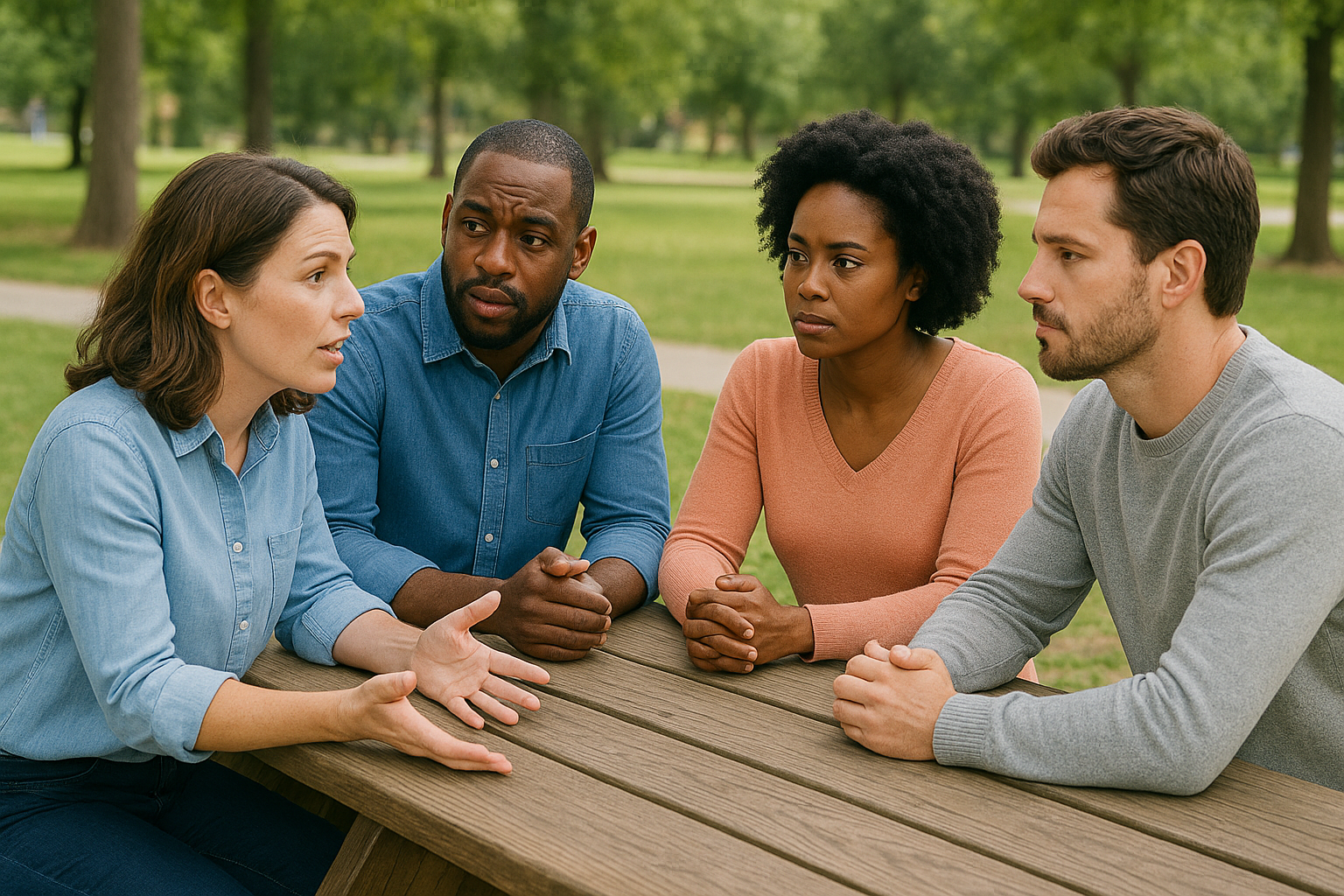Productive Conflict
The subject of ‘having healthy relationships’ is important for me and my clients. As we work together, we focus on creating a healthy therapy relationship and talk actively about how our relationship is going. This gives my clients a chance to: (1) become aware of what healthy conflict looks like, (2) how it feels, and (3) to practice it.
Early on, I share with clients what I’ve learned about conflict in my personal life and as a therapist: that the ability to have productive conflict is a key ingredient to a healthy relationship.
If you’ve ever had a relationship that had no conflict, it probably didn’t go very well. Why not? It sounds peaceful right? Unfortunately, that peace comes at a big cost. Likely the relationship suffered as you drifted apart, became resentful, or had frustrated eruptions of unproductive conflict. On the other hand, if you’ve had relationships full of constant, overly aggressive conflict, the result is that it erodes or breaks your closeness and trust in each other, while resentment builds up. If you’re feeling resentful of your relationship, pay attention to this helpful feeling because it’s letting you know there’s a problem that needs to be addressed!
When it’s time to address the problem, know this: It turns out that when it comes to conflict, there’s a ‘sweet spot’.
Some things to keep in mind: (1) Conflict is on a spectrum and can be so mild you don’t even notice, all the way to the other end of the spectrum, a conflict that’s very intense and front-and-center. (2) Another thing to keep in mind is that conflict makes most of us feel anxious. That’s normal. (3) We often want to run away or stick our heads in the sand. (4) But it’s important to breathe, center your Self, and to talk to the other person about the problem. 5) However, productive conflict doesn’t work with a person who consistently dominates, manipulates, or controls (A workbook chapter on this will be posted soon). 6) And a final thing to keep in mind is that conflict might be heated, and that’s ok as long as it’s respectful, but conflict can be very gentle too.
Why is productive conflict healthy? It helps us ‘move the clutter out of the relationship house’. Clutter might be annoying, but it isn’t a problem until it builds up, and you begin to trip on it, or need to walk around it, or until it begins to fill every corner of the room… then it’s a big problem!
Productive conflict also helps the individuals and relationships grow because in order to resolve the conflict, we have to understand the other’s perspective while standing firm when needed, or balancing our view with the other person’s. We also have to be flexible, but again, while not giving our Selves away. Working out conflict can look many ways, for example it can be creative or logical, and it can be subtle or an exhausting negotiation.
In therapy, my clients and I talk about all of this, and we talk about the growth that results from having productive conflict in both personal and work relationships. During these talks, we check in on how we're doing with conflict in the therapy room itself, because yes that happens!
I work hard to model embracing rather than avoiding conflict—holding differences between myself and my client with empathy, boundaries, and care.
If you’re really starting to think about ‘productive conflict”, as a starting point, I encourage you to do what I have done and what I ask my clients to do: (1) Reflect on how conflict was handled in your family of origin. (2) Think about how you felt about conflict as a child. (3) Think about what conflict looks like in your adult life. (4) Think about how you feel about conflict now. (5) Focus on how your body feels during conflict or when you think about conflict. (6) Focus on how you feel after you’ve worked out a conflict with someone…and how your body feels then. (7) Equally, pay attention to how it feels, and how it impacts your relationship, when you avoid addressing problems. (8) Compare your feelings from 6 and 7.
There’s so much to this topic, and I’m working on a workbook to support this reflection.
One more thing-let’s talk about how Conflict avoidance—or acting out around conflict—is far too often the norm. I’m often stunned by how little productive conflict I see around me. But I don’t think we can be truly healthy in our relationships if we don’t know how to handle the conflict that inevitably arises. Learning how to engage in productive conflict is complex, yes, but not learning how costs us—individually and collectively. It costs us in one-on-one relationships and in group relationships, including those at work.
What’s not okay to do in the name of conflict? Whether we're talking about relationships between couples, friends, family, or workmates, dynamics involving aggression, coercion, or manipulation are never okay. The best response to such tactics involves knowing our limits, setting boundaries and self-care, including walking away if needed.
In all our relationships, healthy conflict is an opportunity. If your opinions never change, or you feel certain you’re always right, see this as a concern—and consider opening up to more growth. If your relationship seems distant, stuck or consistently turbulent, consider that learning to have healthy conflict might help.
We can all learn how to do this and to have healthier, more vibrant relationships as a result!
Copyright © 2025 Dr. Julie E. Waters, Psy.D.


